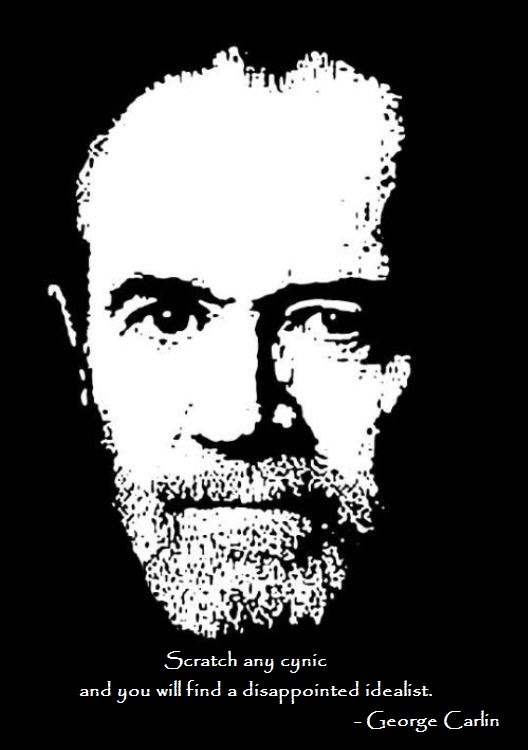Thesis
Throughout John Gardner's book 'Gendel', the main character tries to find his place in the world and encounters different philosophies as he goes. The book serves as an allegory against other philosophies, especially existentialism, to be in favor of empiricism. Although Gardner may not have intended it, the main character Grendel also goes transitions from the theory of classic cynicism to modern cynicism before his encounter with Beowulf which then switches him to scientific skepticism. This ultimately leads the reader to an additional argument, one that is against cynicism.
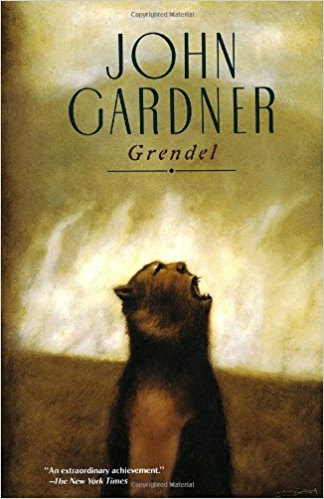
What is Cynicism
Classic cynicism calls for people to live in agreement with nature and concerned itself with how to live a virtuous life. Modern cynicism emphasizes negative aspects of the cynic to mean a suspension of disbelief in the sincerity or goodness of human motives and actions. Scientific skepticism is a close relative of empiricism but holds that nothing is true unless it is proven.
Where is it referenced?
Cynicism first came from the greeks uncertainty of the world and their place in it. The philosophy is a reaction to the modernization and expansion occurring in Greece in 400 BC. This is also how we are introduced to Grendel in the first chapter. After twelve years of exploiting the Danes Grendel is uncertain about his place in life. Grendel continuously destroys the Danes mead-hall and the Danes will continuously rebuild it. He refers to it as an "idiotic war" and laments its mundanity. Grendel scoffs and calls the Danes "industrious and witless as worker ants" as he sees the more simple and natural life to be more virtuous.

Example of Classic
In chapter two, Grendel reveals the origins of his philosophy as he grew critical of the human society but ultimately changes in reflection as he sees the Danes as he saw the ram in chapter one, acting just as instinctually and predictably. He concludes that "I alone exist" declaring the Danes he harasses as just objects to push against. He accepts the only natural way to live is how is the relationship of him terrorizing the Danes and the Danes rebuilding. Although he disdains the mundanity of it, he does not yet seek an alternative to this in the book. The opinions of Grendel reflect those views of modern cynics. Modern cynics are criticized for making critiques on society but never formulating solutions for them. Modern cynics believe that those problems are inherent and have a generally pessimistic outlook.

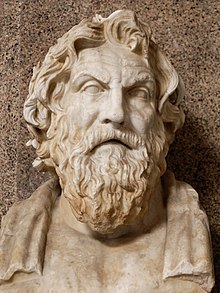
Example of Modern
Elements of both classic and modern cynicism resurface in chapter six. This can be seen with his encounter with Unferth. When Unferth confronts and threatens to kill Grendel, Grendel responds mockingly. He retorts that being a hero must be an awful inconvenience. The duty of being firm and well-spoken "must wear down a man", by this Grendel is not necessarily speaking about the physical person but that psyche of a hero must so warped be to not resemble an individual.
Grendel's perspective is that living naturally gives him the most freedom, an idea best illustrated by the philosopher Diogenes. Diogenes lived with no desire for a job or popularity or power influence or wealth. Because of this he could say and do publicly anything he wanted. The freedom he had to live virtuously, or what he saw as virtuous, was very nearly uncompromised. Why would someone give up virtuous freedoms for mere constructs? Diogenes concluded it was the people acting selfishly and materialistically. Modern cynicism is defined by the emphasizes of negative aspects of the cynic to mean a suspension of disbelief in the sincerity or goodness of human motives and actions.
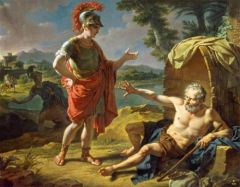
The Unferthining
Grendel's theory comes into conflict when he meets Unferth who restrains himself to be a hero and through those restrictions finds virtue. Grendel taunts "Everyone always watching you, weighing you, seeing if you are still heroic" arguing that his endeavor is not one he would do on his own, unnatural to Unferth's self. Because Unferth's actions are unnatural, Grendel assumes that Unferth is doing this for his reputation or appraisal in Dane's society.
When Grendel leaves to his cave and finds Unferth followed him just to fight. When questioned by Grendel, Unferth argues that he is not acting for the praise "No man above will ever know whether Unferth died here or fled to the hills like a coward. Only you and I and God will know the truth." and say that there is an inner heroism that extends beyond oneself. Unferth claims that heroism is not just a personal pursuit but also gives meaning to life.
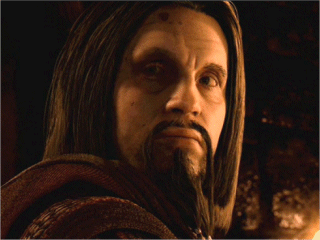
Crisis
The philosophical question Grendel has been dealing with since that beginning of the book was what is the meaning of life. Grendel was coming to the conclusion that the meaning to is to live with high moral standards. He thought himself to be higher than any creature, especially the men he despised. To live righteously Grendel decided to live in opposite to man. Now he is unsure about how to live that happy, virtuous life. He must consider if the liberty of living freely and being the natural-self give him virtue or would self-discipline and abstinence from destructive emotion provide the virtue he yearns. So Grendel chooses neither.

Skepticism
He decides that he has put too much emphasis on the meaning of life than what it deserves. The skepticism found in Grendel resembles more modern cynicism than scientific skepticism. Scientific skepticism is similar to empiricism in believing that sensory evidence is required for something to be known. Grendel's skepticism is rooted in his conflict with his own beliefs of what is the meaning of life and what the dragon told him. Since he cant find the one true meaning, there must not be one. He is the most unsure than he has ever been and finally lands on Nihilism, saying in chapter seven "I changed my mind. It would be meaningless, killing her. As meaningless as letting her live." right after Grendel had burst into the mead hall and killed Danes. His ideology has stopped on a dime and reversed. Grendel's inability to make meaning out of his life and his realization that he can not find meaning marks his slow descent into nihilism and existentialism.

Conclusion
The book ends with Grendel's death after fighting Beowulf. The best arguments always include a rebuttal of differing viewpoints. In order to convince people to not believe in cynicism or existentialism or any other ideology, Gardner uses that same technique adults use to convince children to abstain from bad behavior, by telling a fairytale. The emotions and thoughts of Grendel are human and are made to resemble how a typical person would react to conflicting ideas. Gardner includes other philosophies to one-by-one represent tham and discredit them. Gardner dislikes existentialism because of its elements of meaning and what is the truth. Those elements can be found in many other philosophies so he engages in refuting all of those elements and its many costumes. Gardner has been quoted talking about the philosophical question of meaning saying "Either you behave as if there were a god and try to determine what is right, or you accept the world as it seems to be and scoff at all the values because according to what is true at this moment they are lies." Grendel, after attempts to find meaning and give meaning, chooses to not to assert any meaning and decides to die. To defeat his enemy, he defeats it completely.










